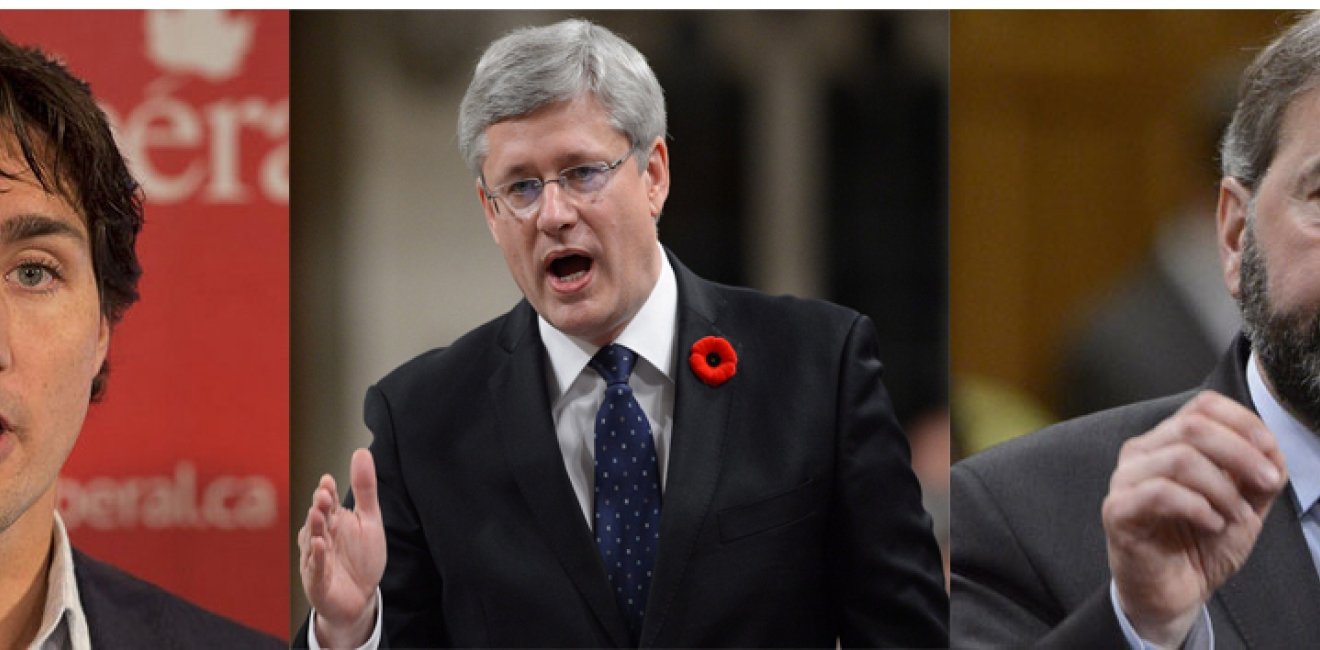Conservative Party: Prime Minister Harper
Past Positions
- Promised to establish a Clean Energy Dialogue with the US
- Abandoned 2009 Copenhagen commitment to reduce GHG emissions by 17% below 2005 levels
- Made G20 promise to end fossil fuel subsidies but in 2015 committed to a subsidy for LNG
- Committed to G7 goal of cutting emissions by 30% below 2005 levels in 2030, 40% by 2050
Future Proposals
- Supports R&D for clean energy
- Would invest in renewables to reduce fossil fuel use where it is equitable geographically between the regions
- Promise to end all fossil fuel use by 2100
- Does not support a federal carbon tax
- Argues that oil and gas should be regulated on a North American basis, the industry is so integrated; might support regulations if initiated by the US
Liberal Party: Justin Trudeau
Past Positions
- Acknowledges the existence of global warming
- Supports Keystone XL and the growth of the oil sands industry
- Opposed to Northern Gateway Project
Future Proposals
- Intends to create a national environmental strategy that:
- Works together with provinces and territories to reduce greenhouse gases, which would allow provinces and territories to design their own policies, including set their own carbon pricing
- Adheres to international agreements to keep the Earth’s greenhouse gas emissions below the level that would increase global temperature by 2 degrees Celsius
- Sets firm annual targets for Canada’s emission reductions
- Publishes independently validated annual progress reports
- Invest in research to reduce costs of green energy technologies
New Democratic Party: Thomas Mulcair
Past Positions
- Opposed to Keystone XL and Northern Gateway pipelines
- Acknowledges that oil will continue to play a significant role in our economy in the short/medium term
- As an MP, he re-introduced Jack Layton’s climate change bill to reduce greenhouse gases to 80% below 1990 levels by 2050
Future Proposals
- Intends to create a cap-and-trade system that puts a market price on carbon
- Will adhere to international climate change commitment (Copenhagen agreement made by PM Harper) to reduce greenhouse gas emissions
- Intends to prioritize the settlement of First Nations land claims and treaty disputes
- Aims to invest in renewable energy projects
- Plans to attend major international climate change conference in Paris
Green Party: Elizabeth May
Past Positions
- As an MP, declared a “climate emergency” and committed to a course of transformational as opposed to incremental change
- As an MP, proposed initiating transition of carbon-based energy to sustainable/renewable sources at a minimum rate of 6% per year and develop a resulting job/investment plan
Future Plans
- Would charge a fee to industry for extracting fossil fuels from the ground/at point of import and return the money in a cash dividend to everyone, accounting for increase in price from carbon fee
- Wants to reduce carbon emissions 30% below 1990 levels by 2013; 85% by 2050
- Would change regulations on new building projects to make them more energy efficient
- Advocates for substantial R&D funding for green energy sources (wind, geothermal, solar; not nuclear)
- Would adopt California vehicle emissions standards to cut GHG output by 90% in 15 years; also promote bicycle & rail infrastructure, provide rebates for green vehicle purchases
- Hopes to cap average global temperature increase by 1.5 degrees by cutting emissions and encouraging action on the part of other countries
- Wants to work with international community to establish aggressive emissions reductions standards
- Wants to bring recycling in industry up to 90% to German standards
- Would ban fracking, remove all subsidies to non-renewable energy industries, end the use of coal-fired power plants, forbid oil supertankers from transporting Alberta oil from the West Coast

Canada Institute
The mission of the Wilson Center's Canada Institute is to raise the level of knowledge of Canada in the United States, particularly within the Washington, DC policy community. Research projects, initiatives, podcasts, and publications cover contemporary Canada, US-Canadian relations, North American political economy, and Canada's global role as it intersects with US national interests. Read more

Explore More
Browse Insights & Analysis
Greenland’s New Governing Coalition Signals Consensus
Posted date/time:

Myanmar’s Junta and the 2026 Elections: A Fig Leaf for Legitimacy?
Duration:15.24Posted date/time:

Imamoglu’s Arrest Sparks Nationwide Unrest and Raises Fears for Turkish Democracy
Duration:2:32Posted date/time:

